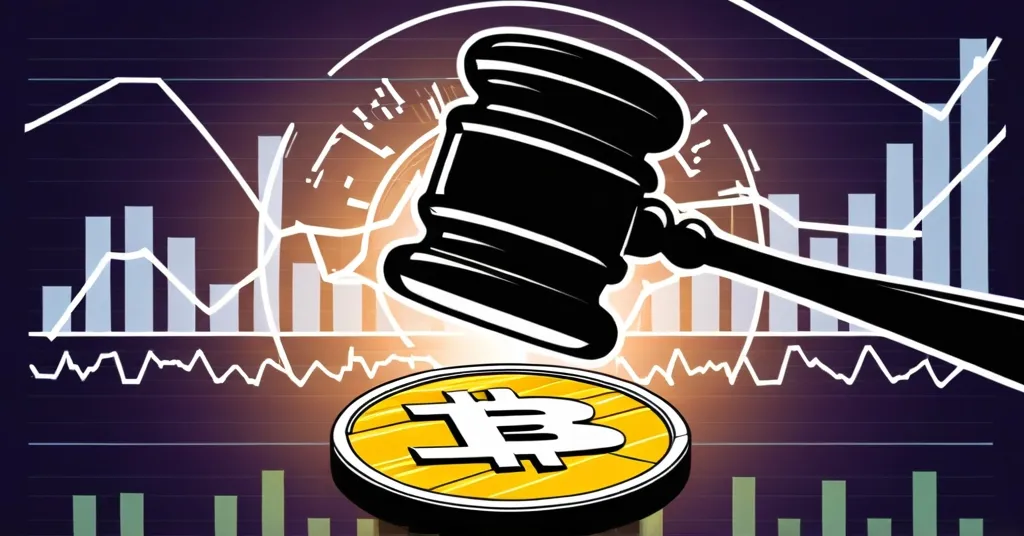SEC Acknowledges Grayscale’s Solana ETF, Signals Regulatory Shift

SEC Acknowledges Grayscale’s Solana ETF Filing, Signals Shift in Crypto Regulation
The U.S. Securities and Exchange Commission (SEC) has made a notable shift in its approach to cryptocurrency ETFs, acknowledging Grayscale’s filing for a Solana (SOL) ETF. This move, which departs from the SEC’s previous rejections, sets a potential October deadline for the decision on the application. Alongside this, the SEC has also recognized other significant filings, including Grayscale’s Litecoin (LTC) ETF and BlackRock’s proposal for in-kind creations and redemptions for its Bitcoin ETF.
- SEC acknowledges Grayscale’s Solana ETF filing, shifting from past rejections.
- Decision on Solana ETF application expected by October.
- Other crypto ETF filings, including Litecoin and Bitcoin, also recognized by SEC.
- Public comment period opened for Grayscale’s Litecoin ETF.
- Leadership changes at SEC may signal a more favorable environment for crypto ETFs.
This acknowledgment comes on the heels of a leadership shakeup at the SEC, with acting Chair Mark Uyeda appointing Commissioner Hester Peirce, known for her pro-crypto stance, to head a new crypto task force. The task force aims to clarify which crypto assets qualify as securities and foster an environment friendly to innovation. This could be a significant boost for the crypto ETF market, with a 21-day public comment period opened for Grayscale’s Litecoin ETF proposal.
The SEC’s previous approach under former Chair Gary Gensler was heavily enforcement-driven, leaving many crypto projects in a state of regulatory uncertainty. With Peirce leading the task force, the agency appears poised to provide clearer guidelines and temporary relief for token issuers. This shift could be a game-changer for various cryptocurrencies, including Solana, Litecoin, and even XRP, for which Cboe has submitted filings for four ETFs from Bitwise, 21Shares, Canary Capital, and WisdomTree.
Analyst Eric Balchunas of Bloomberg Intelligence noted the significance of this shift, stating:
“We are now in new territory, albeit just a baby step, but seemingly the direct result of leadership change.”
The potential impact of these developments is substantial. For instance, the shift towards in-kind redemptions for Bitcoin ETFs could set a precedent for other crypto ETFs, improving efficiency and potentially reducing tax liabilities for institutional investors. In-kind redemptions allow investors to exchange their ETF shares directly for the underlying asset (e.g., Bitcoin), which can be more tax-efficient than traditional cash redemptions. Meanwhile, Hester Peirce’s mention of cross-border regulatory sandboxes could provide crypto projects with a controlled environment to test their models, further fueling innovation in the space.
While the crypto community remains cautiously optimistic, it’s important to acknowledge the potential challenges and delays in the SEC’s approval process. The history of crypto ETF rejections, including those for Solana, suggests that while the acknowledgment is a positive step, it’s not a guarantee of approval. Moreover, the SEC’s task force will need to navigate the delicate balance between investor protection and fostering industry growth, which may not be an easy task.
From a Bitcoin maximalist perspective, these developments could impact Bitcoin’s dominance. While Bitcoin remains the flagship cryptocurrency, the potential approval of ETFs for altcoins like Solana and Litecoin could diversify the crypto ETF market, potentially challenging Bitcoin’s position. However, it also underscores the role of altcoins in filling niches that Bitcoin may not serve well, aligning with the ethos of decentralization and financial innovation.
These regulatory changes align with the principles of effective accelerationism (e/acc), promoting rapid technological advancement and disruption in the financial sector. By providing clearer guidelines and fostering innovation, the SEC’s new approach could accelerate the adoption of decentralized technologies and enhance the growth of the crypto ecosystem.
Key Questions and Takeaways
What does the SEC’s acknowledgment of Grayscale’s Solana ETF filing signify?
It signifies a potential shift in the SEC’s stance on cryptocurrency ETFs, moving from rejection to acknowledgment, which could lead to more favorable regulatory decisions in the future.
How does the recent leadership change at the SEC impact cryptocurrency ETFs?
The appointment of Hester Peirce to head a crypto task force may create a more favorable environment for crypto ETFs, as she is known for her pro-crypto stance and focus on clarifying which crypto assets are securities.
What is the public comment period for Grayscale’s Litecoin ETF proposal?
The SEC has opened a 21-day public comment period for Grayscale’s Litecoin ETF proposal, starting from its publication in the Federal Register.
Which other crypto ETFs have been acknowledged by the SEC recently?
The SEC has also acknowledged Grayscale’s Litecoin ETF and BlackRock’s proposal for in-kind creations and redemptions for its Bitcoin ETF, along with filings for four XRP ETFs from Bitwise, 21Shares, Canary Capital, and WisdomTree.
What is the significance of the 19b-4 filing in the context of crypto ETFs?
A 19b-4 filing is the second part of a two-step process for proposing a spot crypto ETF, and its acknowledgment by the SEC initiates the agency’s approval process.
As we stand at the threshold of a potential crypto ETF revolution, the SEC’s acknowledgment of these filings is just the beginning. Whether it’s Solana, Litecoin, or Bitcoin, the crypto world is ready for a regulatory environment that embraces innovation without compromising on investor protection. It’s going to be an interesting ride ahead!



